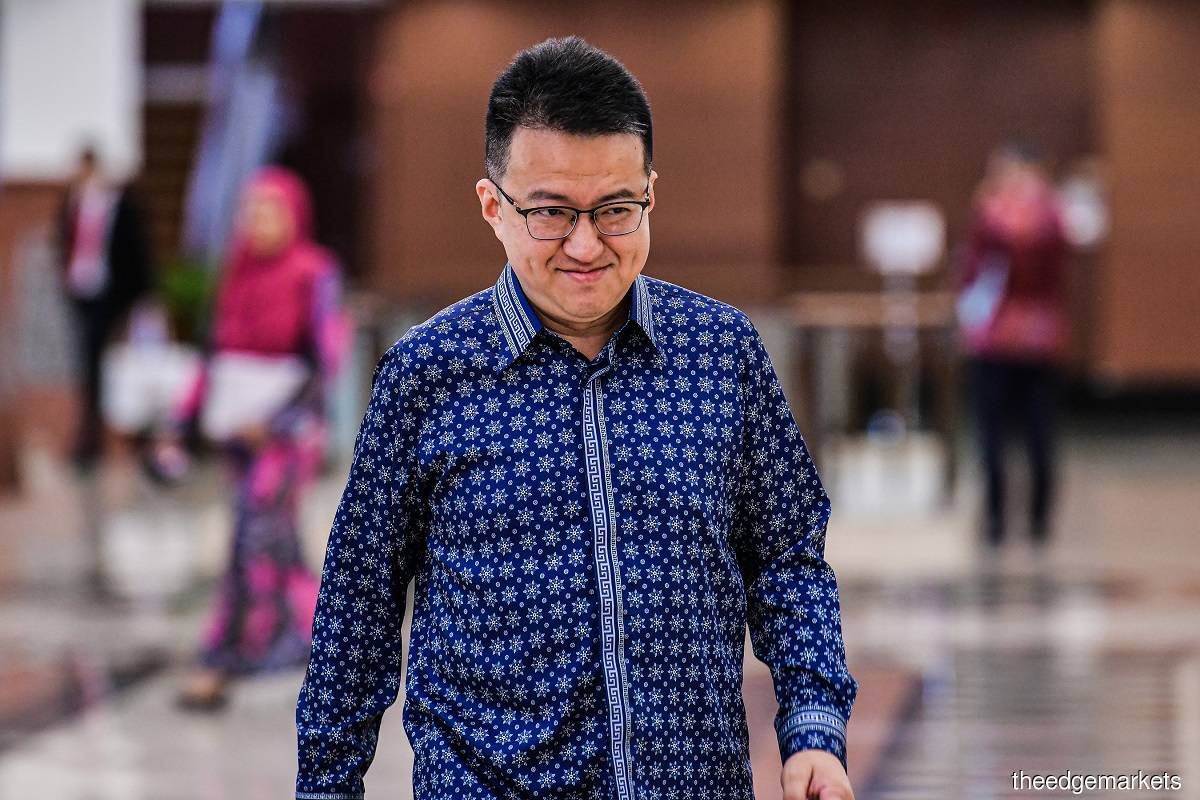Miti: Battery EV demand up 11-fold to over 3,400 units in 2022, charging points up 51% from 2020

- The total number of ready EV and hybrid units in Malaysia currently stands at 21,659 units.
KUALA LUMPUR (Feb 20): Demand for electric vehicles (EVs) in the fully battery electric vehicle category jumped by more than 11 times to over 3,400 units in 2022, compared with an average of 300 units annually in past years, according to the Ministry of International Trade and Industry (Miti).
Deputy Minister Liew Chin Tong (pictured) also told the Dewan Rakyat on Monday (Feb 20) that the number of charging stations stood at 900 units in 2022, an increase of 51% from 2020.
He said the total number of ready EV and hybrid units in Malaysia currently stands at 21,659 units.
Liew was responding to Tebrau Member of Parliament Jimmy Puah Wee Tse, who asked the ministry to state its policy to encourage the use of EVs, and to set up more charging points nationwide.
Liew, who is also the Iskandar Puteri MP, said there is a proposal to increase the number of EVs, including hybrids, as department vehicles and official vehicles, and the proposal is being refined by the Ministry of Finance.
“Land public transport vehicles will also continue to be encouraged to convert to vehicles that use electricity," he added.
While the government has offered tax breaks for EVs in Budget 2022, Liew said additional incentives had also been proposed for the revised Budget 2023 to be announced on Friday (Feb 24).
The previously announced tax incentives included the complete exemption of import duty, excise duty and road tax for EVs that are assembled locally or imported as completely built-up (CBU) units.
“The current import permit or approved permit guidelines have been improved by providing flexibility on the maximum quantity of vehicles imported as CBU [units] for market research pre-assembly of EVs, so that local assembly companies have more opportunities to assess new market needs for the EV segment before starting production,” Liew said.
“In addition, mobility service providers are also given the same flexibility in terms of importing CBUs for EVs. This improvement gives more EV options to be offered in the market to the people.”
Liew on Monday also said the Malaysian Green Technology and Climate Change Corporation (MGTC) is developing a strategic framework for the development and planning of overall EV charging infrastructure in Malaysia.
“The current procedure for the electric vehicle charging system (EVCS) is being studied to reduce the installation approval processing time. The Energy Commission has also issued a guide for EVCS installation activities to ensure that the installed EV charging system is safe for users to use, in addition to complying with the technical requirements,” he added.
Miti is responsible for transforming the automotive industry from the production of internal combustion engine type vehicles to EVs, in line with the energy efficient vehicle target under the National Automotive Policy 2020.
Follow Us
Follow our channels to receive property news updates 24/7 round the clock.
Telegram

Latest publications
Malaysia's Most
Loved Property App
The only property app you need. More than 200,000 sale/rent listings and daily property news.
